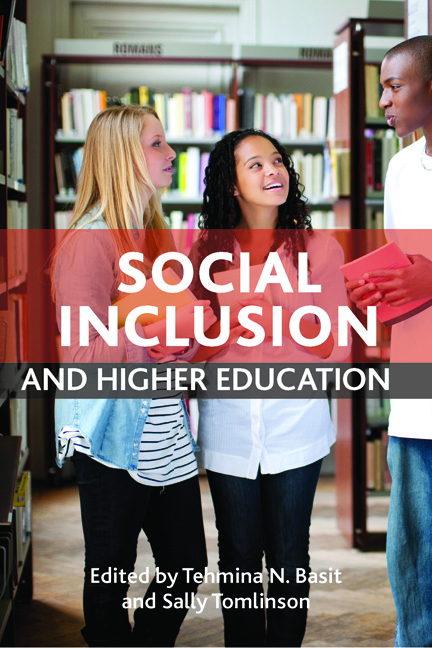eight - ‘I’ve never known someone like me go to university’: class, ethnicity and access to higher education
Published online by Cambridge University Press: 01 September 2022
Summary
Introduction
Britain is a country with a highly diverse population originating from various parts of the world. A large proportion of the minority ethnic people who have made Britain home for themselves and their future generations belong to the working class. Like most immigrants, these people are constantly striving for upward social mobility. Education is perceived as the most significant avenue through which these minority ethnic groups can improve the life chances of their children. Their aspirations for their children are sometimes viewed by educationalists and educators as unrealistic. However, the government's widening participation and social inclusion agenda has enabled many young people from working-class, minority ethnic backgrounds to enter higher education; something that they could not previously contemplate. Drawing on the theses of Bourdieu, Coleman and Putnam, and on data from an empirical study, this chapter examines the perceptions of minority ethnic young people in higher education. It investigates the role of cultural and social capitals in young people's desire for and success in higher education, and in improving their life chances. While young minority ethnic people belonging to educated middle-class families receive support and guidance from their parents, those from working-class backgrounds are disadvantaged by their social class as well as ethnicity. Beck (2000) contends that ethnicity and membership of the ‘underclass’ reinforce each other. He gives less importance to the fact that society is divided by various ethnic and religious identities, but is more concerned that the ethnic feature of skin colour determines an individual's inclusion in, or exclusion from, society.
Diversity in higher education
The education and training of minority ethnic groups has been a cause for concern in Britain for some time now. This is true of higher education as well as compulsory and tertiary education. A Department for Education and Skills (DfES) topic paper (Bhattachariya et al., 2003) states that the proportion of ethnic minorities participating in higher education is 13%. They are more likely to enter higher education through non-traditional routes rather than after A levels, and are concentrated in a relatively small number of mainly post-1992 universities. While they are more likely to have degrees as compared with their majority ethnic counterparts, they are less likely to have a first- or upper second-class degree.
- Type
- Chapter
- Information
- Social Inclusion and Higher Education , pp. 173 - 192Publisher: Bristol University PressPrint publication year: 2012

